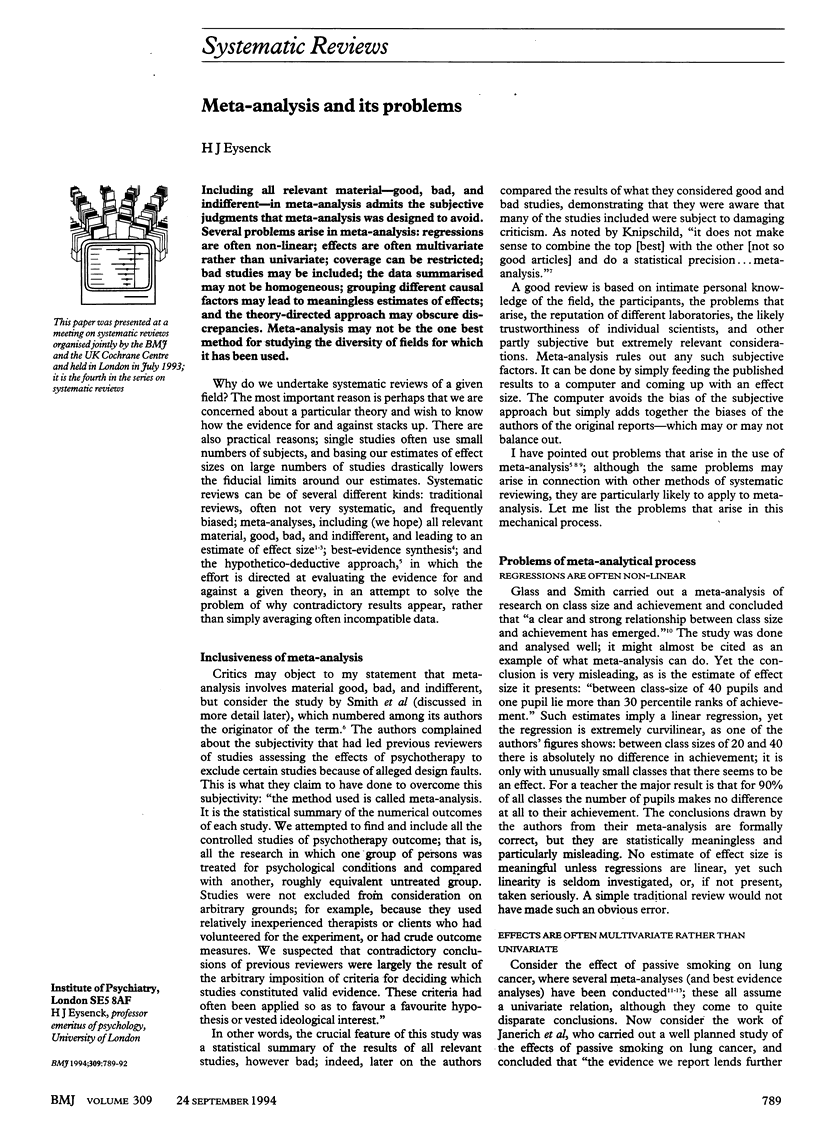Meta-analysis and its problems (original) (raw)
Abstract
Including all relevant material--good, bad, and indifferent--in meta-analysis admits the subjective judgments that meta-analysis was designed to avoid. Several problems arise in meta-analysis: regressions are often non-linear; effects are often multivariate rather than univariate; coverage can be restricted; bad studies may be included; the data summarised may not be homogeneous; grouping different causal factors may lead to meaningless estimates of effects; and the theory-directed approach may obscure discrepancies. Meta-analysis may not be the one best method for studying the diversity of fields for which it has been used.

Images in this article
Selected References
These references are in PubMed. This may not be the complete list of references from this article.
- Fleiss J. L., Gross A. J. Meta-analysis in epidemiology, with special reference to studies of the association between exposure to environmental tobacco smoke and lung cancer: a critique. J Clin Epidemiol. 1991;44(2):127–139. doi: 10.1016/0895-4356(91)90261-7. [DOI] [PubMed] [Google Scholar]
- Janerich D. T., Thompson W. D., Varela L. R., Greenwald P., Chorost S., Tucci C., Zaman M. B., Melamed M. R., Kiely M., McKneally M. F. Lung cancer and exposure to tobacco smoke in the household. N Engl J Med. 1990 Sep 6;323(10):632–636. doi: 10.1056/NEJM199009063231003. [DOI] [PubMed] [Google Scholar]
- Knipschild P. Systematic reviews. Some examples. BMJ. 1994 Sep 17;309(6956):719–721. doi: 10.1136/bmj.309.6956.719. [DOI] [PMC free article] [PubMed] [Google Scholar]
- Schmale A. H., Iker H. Hopelessness as a predictor of cervical cancer. Soc Sci Med. 1971 Apr;5(2):95–100. doi: 10.1016/0037-7856(71)90090-4. [DOI] [PubMed] [Google Scholar]
- Spitzer W. O. Meta-meta-analysis: unanswered questions about aggregating data. J Clin Epidemiol. 1991;44(2):103–107. doi: 10.1016/0895-4356(91)90258-b. [DOI] [PubMed] [Google Scholar]